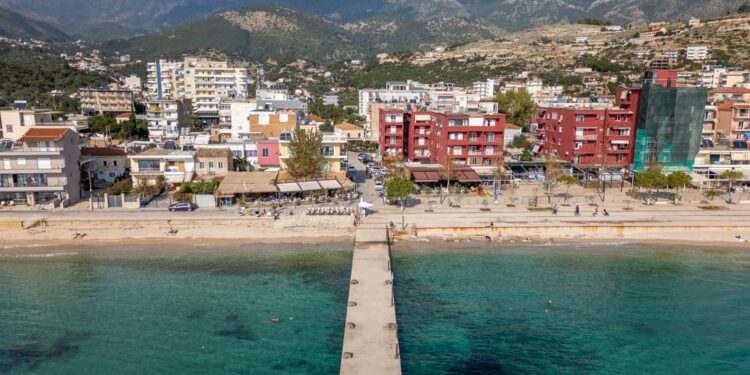Albania’s Union Bank reported a 14.4% year-on-year decline in its net profit for the first half of the year, according to the latest financial results released by the institution. The drop reflects the challenging economic environment and increased operational pressures faced by the bank amid a dynamic market landscape. This development underscores the evolving conditions within Albania’s banking sector as lenders navigate shifting demand, regulatory changes, and broader regional economic trends.
Albania’s Union Bank Reports Significant Decline in H1 Net Profit Amid Challenging Market Conditions
Union Bank of Albania has reported a notable decline in its net profit for the first half of the year, registering a year-on-year drop of 14.4%. The decrease reflects the bank’s ongoing struggle to navigate a complex economic environment marked by low interest rates, rising inflation, and cautious consumer spending. Despite these hurdles, the bank’s management emphasized their commitment to maintaining robust capital buffers and enhancing operational efficiency to weather the turbulent market conditions.
Key factors contributing to the bank’s reduced profitability include:
- Increased loan loss provisions to address potential credit risks amid economic uncertainty.
- Lower net interest margin due to competitive pressures and subdued lending activity.
- Moderate growth in non-interest income, driven primarily by fee and commission revenues.
| Metric | H1 2024 | H1 2023 | % Change |
|---|---|---|---|
| Net Profit (€ million) | 12.5 | 14.6 | -14.4% |
| Net Interest Income (€ million) | 25.1 | 26.7 | -6.0% |
| Loan Loss Provisions (€ million) | 3.3 | 2.1 | +57.1% |
Key Factors Behind the Profit Drop and Impact on Union Bank’s Financial Stability
Union Bank’s net profit decline in the first half of the year stems from several intertwined challenges that have weighed on its earnings capacity. Key contributors include a notable increase in non-performing loans (NPLs), which elevated provisioning costs and squeezed net interest margins. Additionally, the bank faced higher operational expenses amid the ongoing efforts to upgrade its digital infrastructure, a necessary investment to stay competitive in Albania’s evolving banking sector. External economic pressures such as inflationary trends and cautious consumer spending further restrained revenue growth, compounding the profit contraction.
Highlighted factors affecting performance:
- Rising non-performing loan ratios impacting loan loss provisions
- Elevated operating costs due to technology and compliance upgrades
- Modest loan growth in a conservative lending environment
- Macroeconomic headwinds limiting consumption and borrowing
| Factor | Impact on Profit |
|---|---|
| Non-Performing Loans | +25% Provisioning Costs |
| Operational Expenses | +12% Increase |
| Loan Growth | 2.5% Moderate |
| Macroeconomic Conditions | Negative Pressure |
Despite the profit downturn, Union Bank maintains a solid capital base and prudent risk management frameworks that underpin its financial stability. Its capital adequacy ratio remains comfortably above regulatory minimums, providing a buffer against potential volatility. Furthermore, the bank’s focus on digitization aims to enhance operational efficiency and customer engagement, which could bolster future profitability. Market analysts believe that while short-term pressures persist, Union Bank is positioned to navigate these challenges without compromising its long-term soundness.
Strategic Recommendations for Union Bank to Navigate Market Pressures and Restore Profit Growth
To counteract the recent decline in net profits, Union Bank should prioritize enhancing its digital transformation initiatives. Investing in cutting-edge fintech solutions will streamline operations, reduce costs, and improve customer engagement. Emphasizing personalized banking experiences through AI-driven platforms will help retain clients and attract younger demographics increasingly favoring digital channels. Additionally, expanding product offerings in wealth management and green financing can diversify revenue streams and position the bank as a forward-thinking institution aligned with evolving market demands.
Risk management must be intensified by adopting more rigorous credit assessment frameworks and tighter controls on lending portfolios to mitigate non-performing loans amid current economic uncertainties. Collaboration with local businesses and government agencies to support sustainable development projects can bolster the bank’s reputation and open up new partnership opportunities. The following table outlines key strategic focus areas and their expected impact on Union Bank’s performance:
| Strategic Focus | Expected Impact |
|---|---|
| Digital Transformation | Enhanced customer engagement and operational efficiency |
| Diversified Product Portfolio | New revenue channels and market competitiveness |
| Strengthened Risk Management | Reduced credit losses and improved asset quality |
| Sustainable Partnerships | Boosted brand reputation and long-term growth opportunities |
- Leverage AI and fintech for customer It looks like your last bullet point was cut off. Here’s a complete suggestion for the list based on the content you shared:
- Leverage AI and fintech for customer-centric innovation
- Expand wealth management and green financing products
- Implement stricter credit assessment and risk controls
- Foster sustainable partnerships with businesses and government
If you’d like, I can also help you enhance this section or generate additional content related to Union Bank’s strategic recommendations. Just let me know!
In Summary
In summary, Albania’s Union Bank reported a 14.4% year-on-year decline in net profit for the first half of 2024, reflecting ongoing challenges in the domestic banking sector. The bank’s performance underscores the broader economic pressures facing Albanian financial institutions amid shifting market conditions. Stakeholders will be closely monitoring Union Bank’s strategic responses in the coming months as it seeks to stabilize profitability and navigate a complex economic landscape.














